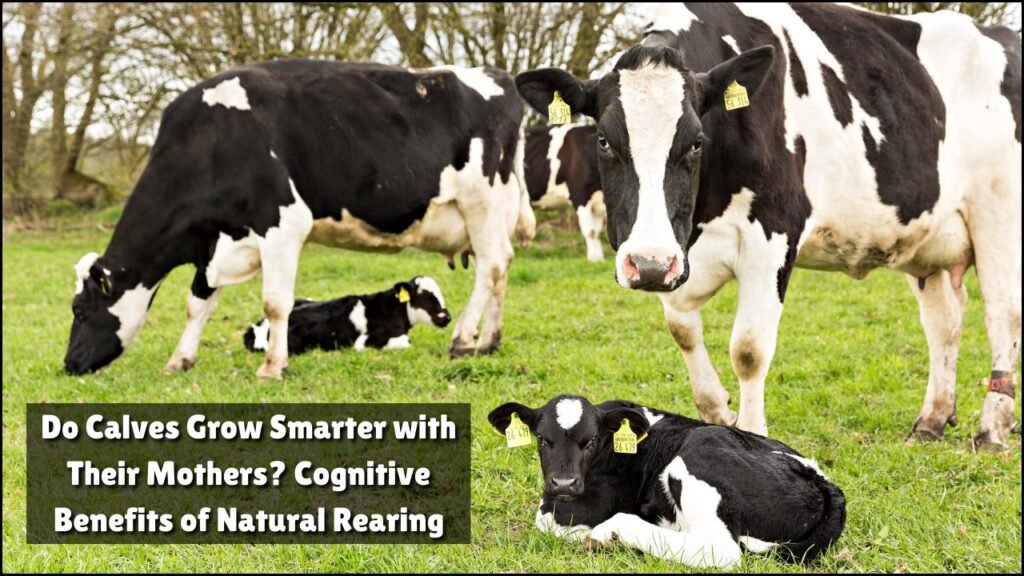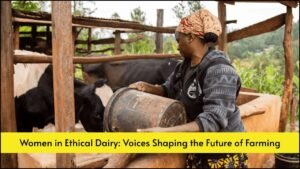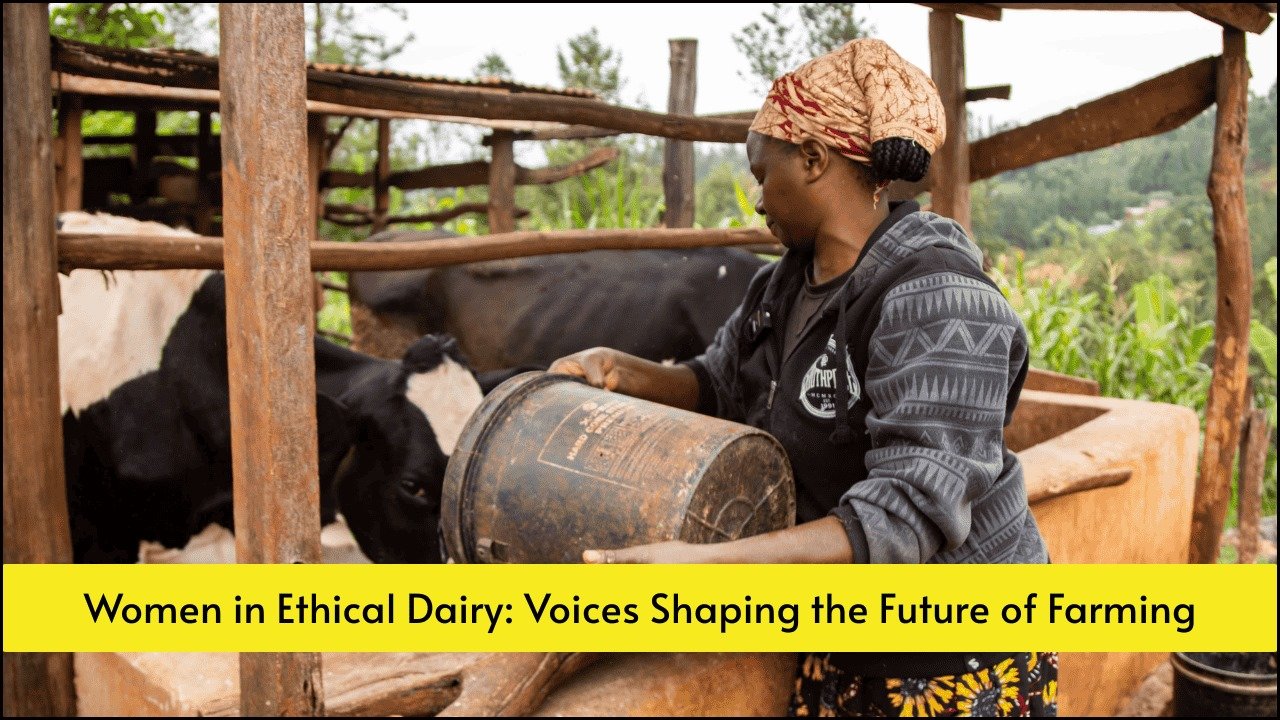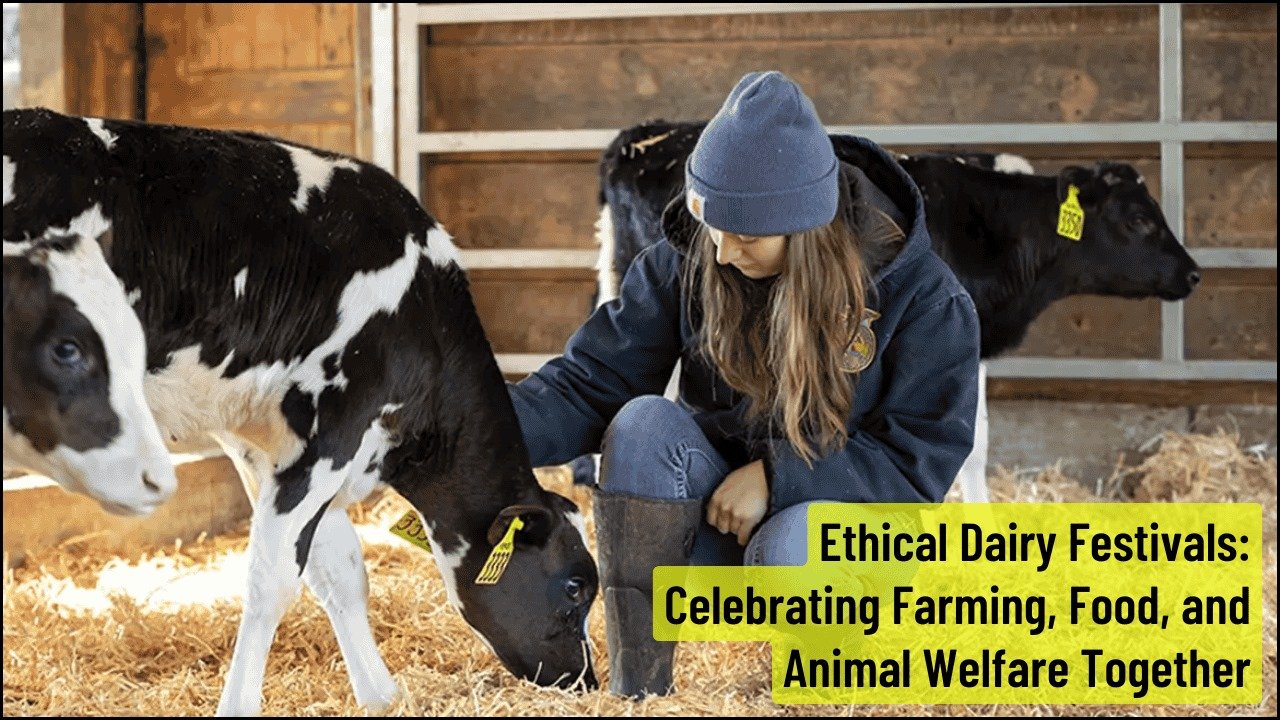
Raising calves in close contact with their mothers has long been seen as a welfare-friendly practice. But beyond comfort and nutrition, researchers are uncovering another fascinating aspect — mother-reared calves may actually develop sharper learning abilities, stronger memory, and improved social intelligence compared to those raised in isolation or artificial environments.
This shift in perspective is encouraging farmers, animal scientists, and policymakers to rethink how natural rearing impacts not just health but also cognitive growth in young cattle.
Table of Contents
Overview
| Factor | Impact on Mother-Reared Calves | Long-Term Value |
|---|---|---|
| Learning Ability | Faster skill acquisition | Strong adaptability |
| Memory Development | Better retention of routines | Reduced stress |
| Social Intelligence | Early herd integration | Lower conflict in groups |
| Emotional Wellbeing | Greater security, less fear | Healthier adulthood |
| Stress Resilience | Quicker coping in new settings | Easier farm management |
| Welfare Perception | Aligns with ethical standards | Builds consumer trust |
Why Cognitive Development Matters in Calves
Cognition in animals refers to their ability to learn, remember, and adapt to new challenges. For calves, strong cognitive development means:
- Faster adjustment to new feeding routines.
- Better social skills in herd environments.
- Reduced stress in handling and transport situations.
- Greater overall resilience and welfare.
When calves are raised naturally with their mothers, they’re not only nurtured physically but also mentally. These experiences may shape how well they cope throughout their lives.
The Science of Mother-Calf Bonding
Mother-calf bonding is more than emotional comfort — it’s a powerful driver of development. Research shows that:
- Calves learn by observing their mothers grazing and interacting with other cows.
- They pick up feeding patterns and explore their environment with confidence.
- Early exposure to herd dynamics builds social skills that reduce aggression later.
In contrast, calves separated early often lack these experiences, leaving them with weaker coping skills and slower learning responses.
Comparing Natural Rearing with Conventional Rearing
Conventional rearing, where calves are separated shortly after birth, is designed for management efficiency and milk collection. While effective for production, it comes with trade-offs in calf development.
| Aspect | Mother-Reared Calves | Conventionally Reared Calves |
|---|---|---|
| Learning ability | Strong observational learning | Limited exposure to role models |
| Memory retention | Enhanced through repeated experiences with mother | Weaker due to isolation |
| Social intelligence | Early practice in herd settings | Delayed development |
| Stress management | Lower stress, better adaptability | Higher stress, slower adjustment |
| Welfare outcomes | Improved physical and mental health | More management challenges |
The evidence strongly suggests that calves benefit cognitively when allowed extended contact with their mothers.
How Calves Learn from Mothers
Young calves imitate their mothers in subtle but meaningful ways. For example:
- Feeding habits: Calves grazing with their mothers explore solid food earlier, leading to smoother weaning.
- Social behavior: They observe how their mothers interact with other cows, learning hierarchy and herd manners.
- Exploration: By following their mothers into new areas, calves develop curiosity and problem-solving skills.
This early foundation creates more confident and adaptable adult cows.
Long-Term Benefits for Farming Systems
From a farming perspective, supporting natural rearing practices may bring multiple advantages:
- Healthier herds: Stronger immunity and lower disease risks.
- Easier management: Calves accustomed to social interactions are less aggressive and easier to handle.
- Sustainable production: Welfare-friendly practices align with consumer demand for ethical farming.
In fact, farms adopting calf-with-cow systems report better calf growth rates and long-term herd stability.
Challenges and Considerations
While natural rearing offers clear benefits, farmers also face challenges in adopting this system:
- Balancing milk yield with calf feeding.
- Modifying housing and pasture management.
- Training staff for welfare-centered handling.
Government agricultural bodies and welfare organizations are increasingly offering guidance on balancing productivity with welfare outcomes. Farmers can refer to resources like the UK Department for Environment, Food & Rural Affairs (DEFRA) for best practices.
Future Outlook
The science is clear: calves raised with their mothers gain not only physical nourishment but also mental advantages that carry forward into adulthood. As welfare-driven farming becomes more mainstream, natural rearing could shift from being a niche practice to a standard expectation.
Farmers adopting this model may find that what’s good for calves is also good for long-term productivity and public trust in dairy and beef systems.
FAQs
Q:- Do calves really learn from their mothers?
A = Yes, they copy feeding, grazing, and social behaviors directly from observing their mothers.
Q:- Is natural rearing better for farm productivity?
A = While it requires adjustments, natural rearing can improve calf health, reduce stress, and support sustainable farming.
Q:- How does natural rearing affect animal welfare?
A = It enhances both physical and cognitive wellbeing, aligning with ethical farming standards.








